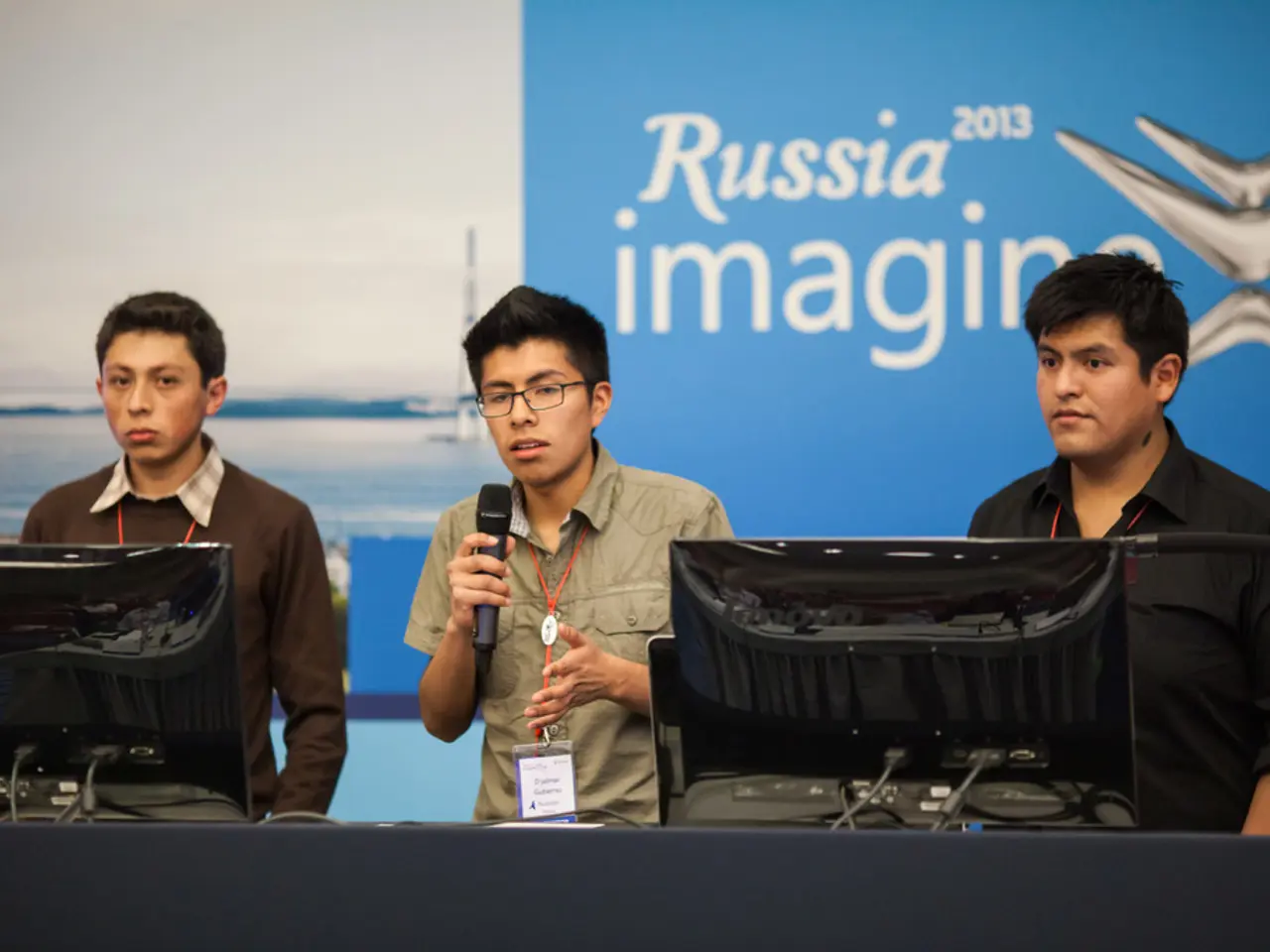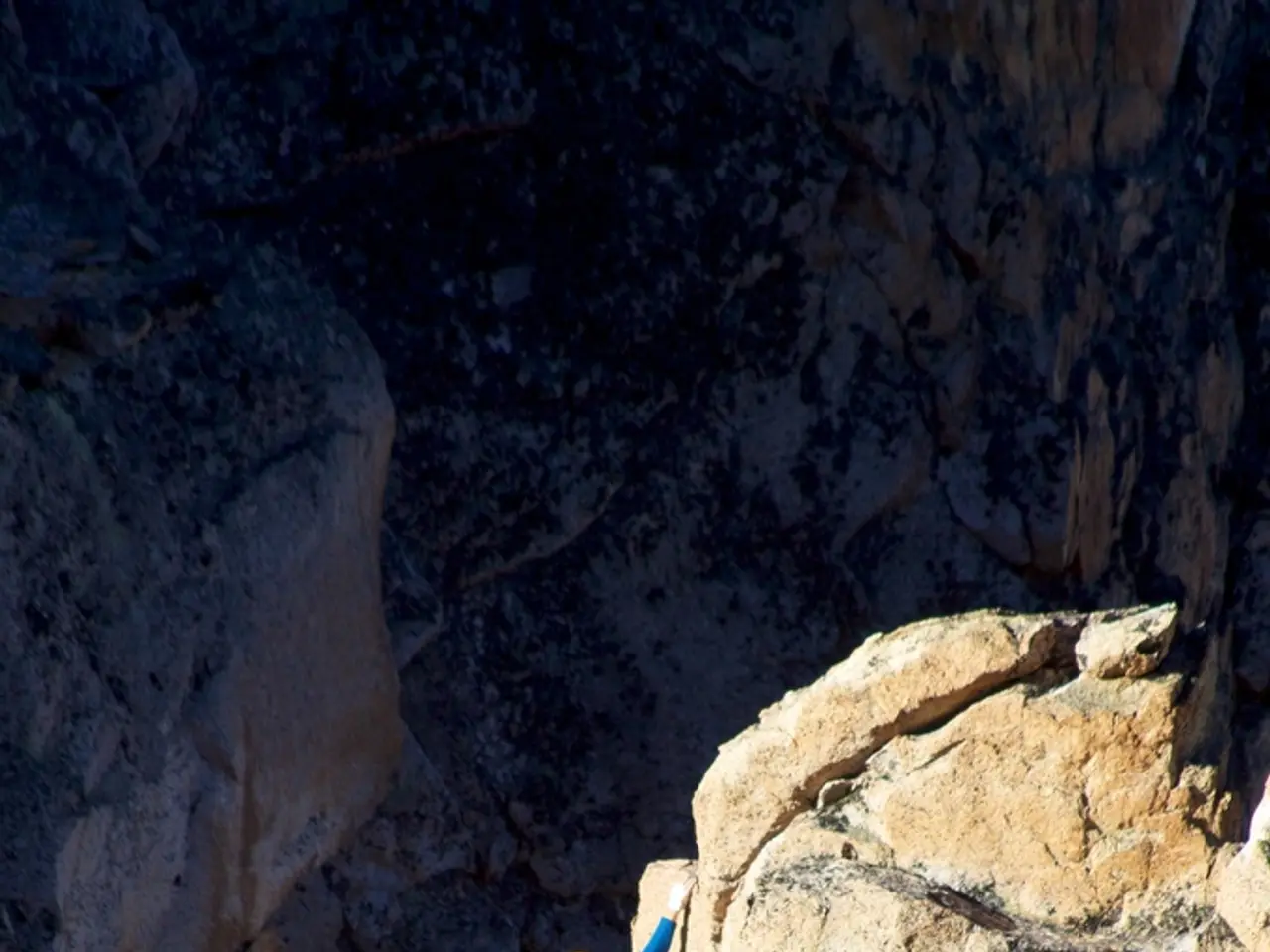Klöckner justifies her conduct at the CSD event
In a move that has sparked debate and criticism, Bundestag President Julia Klöckner has decided that the German parliament will not participate in this year's Berlin Christopher Street Day (CSD). The decision, rooted in Klöckner's commitment to maintaining parliamentary neutrality, has been met with strong opposition from activists and politicians alike.
Klöckner's stance is grounded in the belief that the CSD is a "protest in the streets," and that the Bundestag should "stay out of it." Consequently, the parliament will neither raise the rainbow flag—a global symbol of LGBT+ diversity and equal rights—nor will parliamentary staff participate officially in the CSD march.
This conservative view is shared by CDU leader and Chancellor Friedrich Merz, who reiterated that the rainbow flag should be raised only on the International Day Against Homophobia (May 17), not on other occasions like Christopher Street Day. Merz defended Klöckner's position, describing the Bundestag as "not a circus tent where any flag could be hoisted."
The decision has generated considerable controversy, with critics arguing that not flying the rainbow flag at the Bundestag is a retreat from a clear political signal of solidarity and visibility for the LGBTQ+ community. Berlin's CSD organisers and LGBTQ+ rights advocates, for instance, stress the importance of the parliament demonstrating support rather than taking a symbolic step back.
It is worth noting that Klöckner's decision applies to the Bundestag administration as a whole, not the Rainbow Network of the Bundestag, which participated in CSD under Bärbel Bas in 2023 and 2024. Everyone is free to privately participate in CSD, but not during working hours or with special leave or similar.
Klöckner, who has previously participated in a CSD, has defended her decision, emphasising the importance of not politicising events for which one demands normality. She stated that the black, red, and gold flag flying on the German parliament stands for freedom, freedom of opinion and press, and individuality, including sexual individuality.
The controversy has led to confusion and criticism within the Bundestag and the Berlin CSD e.V. Klöckner did not provide a definitive answer when asked if she would accept the invitation to ride on the Association of Lesbians and Gays in the CDU's wagon at the CSD.
As the debate continues, it remains to be seen how Klöckner's decision will impact the visibility and support for LGBTQ+ rights within Germany's central democratic institution.
The Bundestag President, Julia Klöckner, maintains a conservative view that the German parliament should not participate in general-news events like the Berlin Christopher Street Day, considering it a "protest in the streets." This stance is echoed by CDU leader and Chancellor Friedrich Merz, who advocates for raising the rainbow flag only on the International Day Against Homophobia.
The decision to not fly the rainbow flag at the Bundestag has stirred controversy, with critics arguing it represents a retreat from providing a clear political signal of solidarity and visibility for the LGBTQ+ community. The controversy surrounding Klöckner's decision raises questions about the impact on the visibility and support for LGBTQ+ rights within Germany's central democratic institution.








